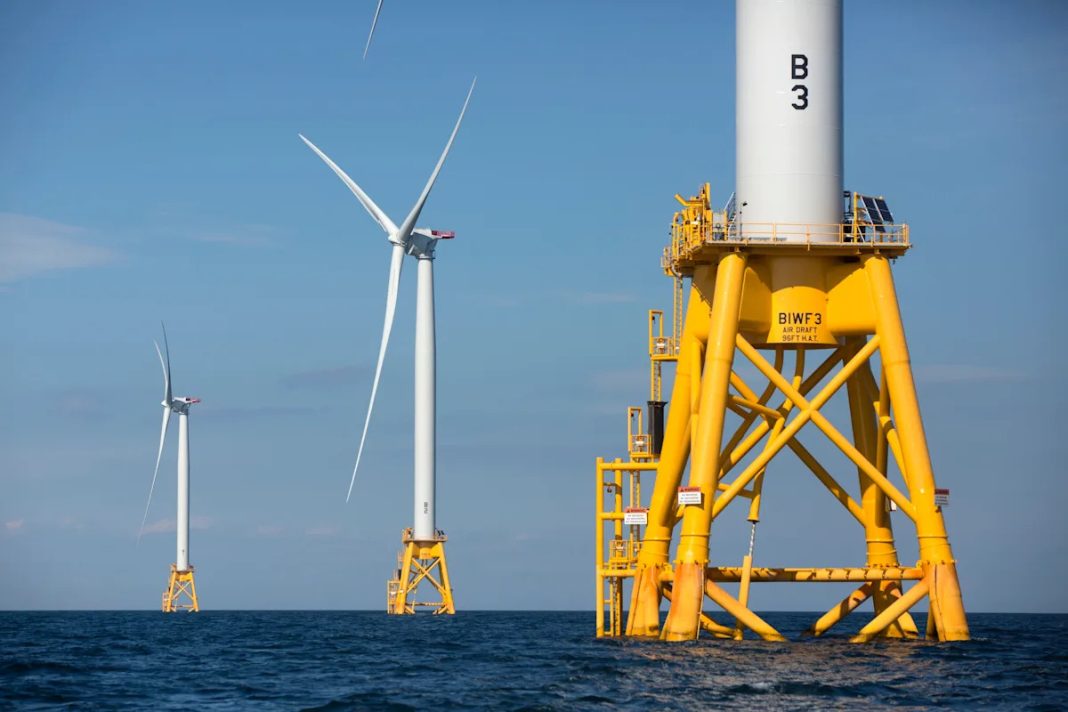A federal judge on Monday allowed work to restart on the stalled Revolution Wind offshore wind project after the Trump administration halted it last month.
Judge Royce Lamberth of the U.S. District Court for the District of Columbia granted a motion for preliminary injunction of the stop-work order imposed by the Trump administration on the New England project during a high-stakes hearing. The multibillion-dollar offshore wind project is one of the highest-profile renewable energy projects that the administration has sought to suspend while it reviews approvals.
“There is no question in my mind of irreparable harm to the plaintiff,” Lamberth said of the administration’s actions during the hearing.
Lamberth granted the preliminary injunction, allowing work on the project to restart while the government conducts review of its concerns. The order said Revolution Wind is likely to suffer irreparable harm if it isn’t able to restart work on the project, which is 80 percent complete.
Lamberth said that if work does not proceed on the project, the “entire enterprise could collapse” and he pointed to a specialized ship necessary to complete the project that will no longer be available after December.
The project, which is being developed by the Danish wind giant Ørsted and Skyborn Renewables, has argued that the stop-work order is illegal and “reflects a shockingly expansive theory of agency power to undo prior regulatory approvals.” Lawyers for the companies argued that the Interior Department violated the major questions doctrine with the pause.
Revolution Wind said the stop-work order “will inflict devastating and irreparable harm” on the project. The company has already spent or committed about $5 billion on the project and will incur more than $1 billion in costs if the project is canceled, it said.
In a statement Monday, Revolution Wind said it will resume construction work “as soon as possible” following the judge’s decision. The project added that it will continue to “seek to work collaboratively with the U.S. Administration and other stakeholders toward a prompt resolution.”
The White House and Interior Department did not immediately provide comment Monday.
The Trump administration issued the stop-work order on the Revolution Wind project in August, pointing to vague concerns related to national security interests of the United States and reasonable uses of federally managed waters.
Since then, the administration has sought to provide more detail on its rationale. It argued in recent filings that the project failed to address mitigation agreements with the Defense Department related to national security concerns. It has also laid out other concerns such as impacts to Atlantic cod spawning areas.
The judge on Monday said the department did not point to “any factual findings” that led it to believe that Revolution Wind implicated either national security or reasonable use concerns, nor that those concerns rise to a level that requires the project to cease immediately.
The stop-work order represents “a clear change in position” by the Bureau of Ocean Energy Management that previously certified that the project did not implicate national security or interference, Lamberth said. The judge added the “arbitrary and capricious” nature of that action was not answered by the additional reasons provided by the government after it issued the order.
Revolution Wind sued the government earlier this month arguing the administration lacked the legal authority to order the halt. The attorneys general of Connecticut and Rhode Island similarly sued the administration in federal court to overturn the order.
Revolution Wind has power purchase agreements to deliver 400 megawatts of electricity to Rhode Island and 304 megawatts to Connecticut, according to Ørsted, enough to power more than 350,000 homes across both states. New England’s grid operator said the freeze on construction “will increase risks to reliability” in the region.
Analysts at ClearView Energy acknowledged in a client note Monday that a likely lengthy judicial process still lies ahead for the project. While the ruling allows Revolution Wind to resume construction, developers may choose not to do so given that the administration could appeal the decision, the analysts said in the note.
Liz Burdock, the CEO of offshore wind group Oceantic Network, said Monday’s decision allowing work to resume “is welcome news for the hundreds of skilled workers who can now return to their jobs while the legal process continues.”

